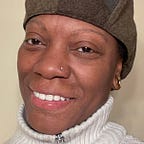Healthcare New Hire Orientation
The Exclusion of African Americans
Oh, how exciting it is to be hired on for a new medical job. Your first-ever position in a large trauma hospital. It’s located in a big metropolitan city with an active community and diverse cultures.
As a traveling healthcare provider, I have attended first-day orientations almost every three months throughout my fifteen-plus years. I’m very familiar with the process, although not every orientation goes the same.
The information is quite repetitive but indeed necessary. You want to know the lay of the land for every facility you work to be able to navigate more freely and be knowledgeable of your environment. For example, where the fire hydrants are located, the emergency exits, how to use a fire extinguisher, how to call a code blue, the cafeteria location, and where employees are to park.
Now depending on your profession, there will come a time or day when you’re split up from the others. Those who are in clinical non direct patient care roles go on to their departments, while those who are stay for further orienting.
This is the meat and potatoes of orientation, the computer sign-ons, the see something say something videos, the ethics slides, and the types of cultures you’ll encounter and how to “respect” them.
There are a multitude of cultures and religions that require specific care and respect when it comes to healthcare. Orientations cover how to treat Muslims, Jews, Latins and Hispanics, and Indian cultures to name a few. No orientation I have been to discusses the needs and or specific care of African Americans. So how are those who are not apart of that culture suppose to know how to care for them? It would be an extremely important and beneficial conversation to have, especially when you take into effect the current events. There have been instances recorded of African American men, women, and children, being mistreated in hospitals and clinics. Some instances even leading to death.
Why is it not discussed? Because then the subject of racism and inequalities would come up. We all know that it’s a very uncomfortable conversation for some but African American people are the most misunderstood and most not talked about people in healthcare. I’ve noticed that as long as the touchy subject of racism in healthcare and mistreatment of African Americans doesn’t come up, then it doesn’t have to be directly addressed.
~~~~~~~~~~~~~~~~~~~~~~~~~~~~~~~~~~~~~~~
Thank you all for reading. Feel free to comment and let me know if you have attended an orientation or have been involved in orientating in a hospital setting. Would you consider the conversation? I’d love to hear of your experiences.
